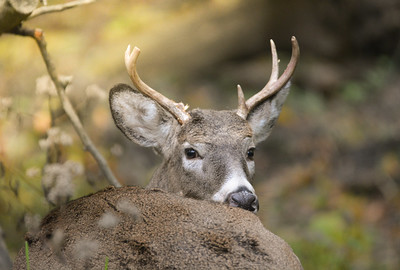
The first case of chronic wasting disease (CWD) has been detected in Kentucky, the Kentucky Department of Fish and Wildlife Resources (KDFWR) announced in a news release yesterday.
A hunter harvested the infected 2.5-year-old white-tailed buck in Ballard County on the opening day of modern-gun deer season in November. Two independent tests confirmed the infection.
"We at Kentucky Fish and Wildlife hoped this day would never come but, we have been preparing for it," KDFWR Commissioner Rich Storm said in the release. "Our team of experts first developed our CWD Response Plan more than 20 years ago, and it has been enhanced through the years using the best available science."
"Collaboration with our many partners, including hunters, taxidermists, meat processors, diagnostic testing facilities, and other government agencies has enhanced our CWD surveillance efforts," he added.
We at Kentucky Fish and Wildlife hoped this day would never come but, we have been preparing for it.
CWD has now been confirmed in 32 US states.
Emergency response plan activated in 2021
CWD has been detected in six of seven states bordering Kentucky—Illinois, Missouri, Ohio, Tennessee, Virginia, and West Virginia. Kentucky activated its CWD response plan in September 2021 after the disease was detected across the state's southern border with Tennessee, prompting the establishment of a CWD surveillance zone in the western part of the state, according to the KDFWR.
Found in deer and other cervids, CWD is a fatal infectious neurologic disease caused by misfolded proteins known as prions. While no human cases have been identified, health officials urge people to avoid eating the meat of infected animals and to take precautions when field dressing or butchering cervids.













